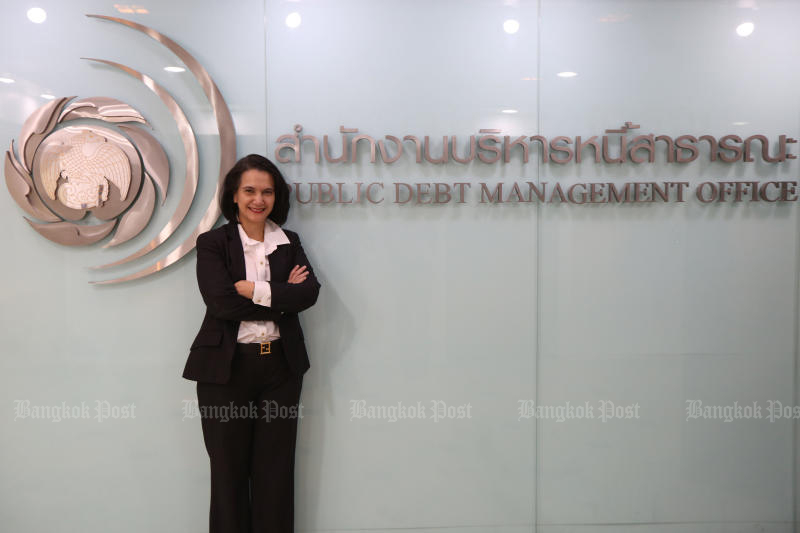
Thailand will shield its government borrowing plan from surging bond yields by tweaking the mix of short- and longer-term debt instruments it issues, according to the Public Debt Management Office (PDMO).
The country will also adjust the ratio of debt carrying fixed and floating returns to minimise the impact of rising borrowing costs, office director-general Patricia Mongkhonvanit said in an e-mailed response to Bloomberg questions. The nation is set to raise a total of 1.4 trillion baht in the fiscal year that began on Oct 1.
The debt office is set to switch as much as 140 billion baht of short tenor sovereign bonds for those with longer maturities this week, days after saying it was suspending a planned dollar bond offering, citing rising borrowing costs and global market volatility.
Thailand is reworking its borrowing strategy as the global bonds market is roiled amid interest rate hikes by central banks led by the United States Federal Reserve to combat surging inflation. The yield on benchmark 10-year Thai bonds have spiked more than 140 basis points this year in tandem with the US Treasury even as the Bank of Thailand held its interest rates at a record low of 0.5% to support a nascent economic recovery.
“The bond yield increase may raise the borrowing cost but the debt office has managed the risk for the government debt portfolio,” Ms Patricia said. “The PDMO is confident that under such circumstances, we will be able to continue fund-raising by adjusting the proportion of each type of instrument to meet the needs of investors.”
With almost 82% of sovereign debt tied to fixed interest rates, the spike in bond yields will not have “any drastic effect” on Thailand’s overall borrowing cost, Ms Patricia said, adding the debt office will hold regular meetings with investors to gauge the market conditions to finalise its bond issuance plans.







